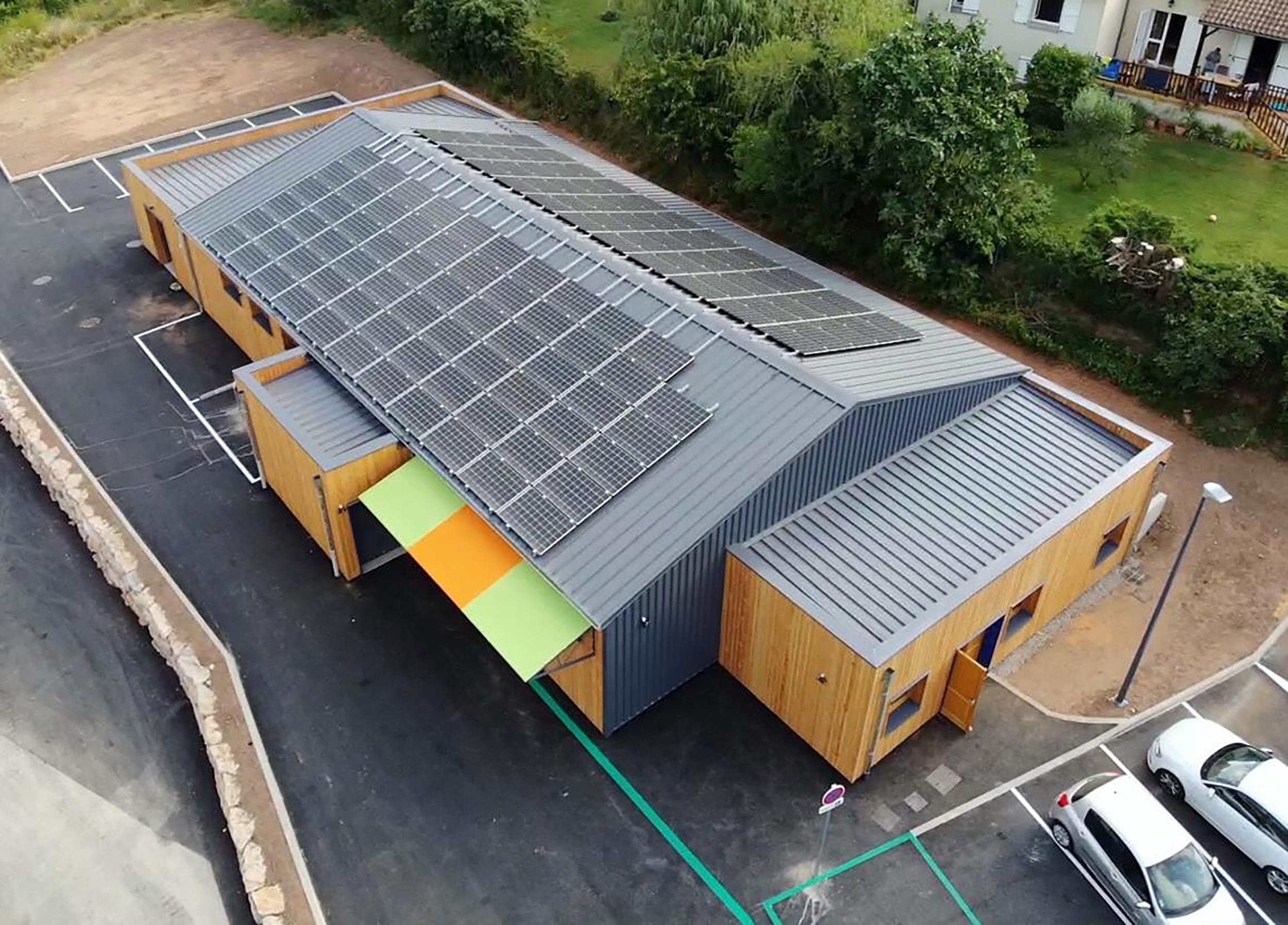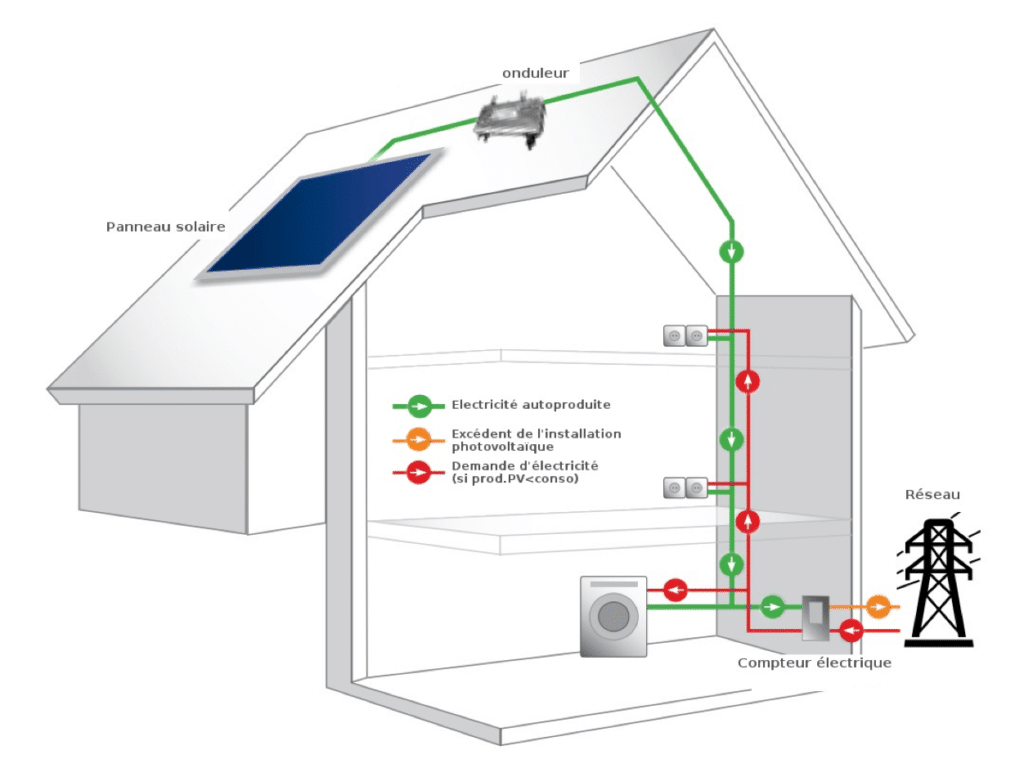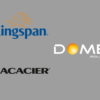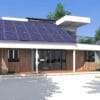Read the summary of the webinar hosted by Simon Durand-Danet, Development Manager at Dome Solar, on the topic of self-consumption for medium and large roofs. The photovoltaic sector has high potential for innovation. For medium and large roofs, the sector is very dependent on building regulations. With the opening up of the self-consumption market, we must keep in mind that we cannot just do as we wish and that it is essential to respect the existing rules.
Principle of self-consumption
Self-consumption is when you consume the energy you produce. If you have a surplus, you can sell the energy produced to energy suppliers or store it in batteries. Technically, this is still quite expensive. But in 5 to 10 years, with all the manufacturers working on the issue of storage (electric vehicles in particular), the price of batteries should drop significantly. The constant increase in the price of electricity and the simultaneous drop in the price of photovoltaic equipment is prompting us to think about self-consumption solutions.
Legislation on self-consumption in France
France has not yet finished legislating on the subject, which means that some things may still change. By creating a legal framework for self-consumption for the first time, the 2017 Biodiversity Act will enable this new market to take a further step forward in its development. Although the Biodiversity Act does not make self-consumption mandatory, it does stipulate the installation of photovoltaic panels or green roofs. The owner may plan to sell all the energy produced.
Who is affected?
Everyone is affected. Everyone can now optimise their roof, provided it is equipped, while respecting certain rules that apply depending on whether the roof is new or being renovated. For example, in the retail sector, every new retail space must now have a roof equipped with photovoltaic panels or a roof greening solution.
Dome Solar’s self-consumption solutions:
Dome Solar is a manufacturer of integration systems for photovoltaic panels on all types of roofs, from sloping to flat roofs. The following products are compatible with self-consumption:
ITAL-SOLAR
- For sloping roofs
- Can be mounted on steel deck and sandwich panels
EB-SOLAR
- 13-cm rails
- Fixed to the deck
HELIOS B²
- Clip system fixed to the deck on the purlin: the weight is distributed at the level of the purlins
- A rail is mounted on this support
- The module is mounted on this rail
FIBRO SOLAR
- Dome Solar is the only company to offer a certified mounting system for this type of roof
- The advantage of fibrocement is that it does not get hot, which enables better production than on a steel roof deck
ROOF SOLAR BITUMEN AND ROOF-SOLAR PVC
- For flat and slightly sloping roofs
- This mounting allows the modules to be inclined to optimise production
- To prevent shadows, there needs to be a space between the modules, which requires a reduction in the area of the modules
Questions / Answers on self-consumption for medium and large roofs
What is the maximum slope for the flat roof system?
Answer from Simon Durand-Danet: The maximum slope is 10%. Above 10%, creep occurs in the materials. It is not impossible to go beyond 10%, but in this case, a petal restraint system for the modules must be installed.
Can you estimate the extra cost of these roofing clips?
Answer from Simon Durand-Danet: We cannot give you this estimate because Dome Solar does not offer this fixing system.
Are your solutions suitable for different types of roof covering? (EPDM, bitumen, PVC, TPO)
Answer from Simon Durand-Danet: Dome Solar offers a solution for all types of covering and roofs of any age and waterproofness. Due to its certifications, Dome Solar has close ties with the waterproofing system as a whole (load-bearing unit, insulation, waterproofing membrane).
What types of roof covering do your certifications cover?
Answer from Simon Durand-Danet: Each roof has its own system and each system has its own certification.
Do you have certification for aluminium deck roofs?
Answer from Simon Durand-Danet: Dome Solar does not have certification for aluminium deck roofs at the moment.
What is the extra cost for mounting systems on flat roofs compared to classic systems on sloping roofs?
Answer from Simon Durand-Danet: That depends on several criteria. The layout is more complex on a flat roof that on a sloping roof. Do not hesitate to contact us for more details.
What is your position concerning the challenge by AQC (French construction quality agency) of ATecs (technical approvals)?
Answer from Simon Durand-Danet: AQC has blacklisted ATEC systems on the basis of statistics. In fact, the agency has told us that there are a certain number of unverifiable disputes, without specifying the types of dispute (leaks, fire, falling panels, etc.), the types of installation (integrated in the frame, integrated, simplified, etc.). Neither has it specified the causes of these disputes (defective products, incorrect implementation, etc.). Furthermore, the market has considerably developed over the last few years. In the early days of photovoltaics, 80% of installations were on private roofs (with systems integrated in the frame) and 20% on medium and large surface areas. Today the trend has been reversed. This is why the AQC statistics seem disconnected from the reality of the ground. Lastly, the agency is not taking into account the market as it is today, i.e., with a majority of ETN type certifications (considered as a technique not in common use) which are therefore not observed by AQC. With regard to DOME SOLAR, we defended our case in sub-committee on 14 November.
Do you have systems for installation on facades / awning?
Answer from Simon Durand-Danet: We do not offer this type of system because we specialise in medium and large surfaces.
Have you drawn up a business plan that will help us make a choice between your flat panel or east/west sloping solution? (membrane covering)
Answer from Simon Durand-Danet: We are not installers; this is not our core business. However, we can indeed help our customers with this process.
Our panel supplier tells us that prices will drop considerably in 2018. Is this also the case for you?
Answer from Simon Durand-Danet: It is possible that there will be price decreases in the photovoltaic panels sector. The mounting sector, which accounts for around 5% to 10% of the budget for a power plant, is highly dependent on the constantly fluctuating price of steel and aluminium. We try to align with the general decrease in the price of products related to photovoltaic power plants. But there will come a time when prices can no longer be reduced, while CRE (Energy Regulation Commission) tariffs are constantly falling. That is also why forecasts predict that the self-consumption market should grow and take off by 2020.
With which modules has your certification with flat roof structures been filed? Will it be extended to other modules, and if yes which ones?
Answer from Simon Durand-Danet: Our certification for the flat Bitumen Roof has been validated with Solarworld and our sloping ETN version with PVC has been validated with Sunpower and Solarworld. It is a complicated task to add modules to certifications. However, in certain cases, we help our customers find solutions.
Self-consumtion is not for everyone. Which energy intensive sectors are concerned?
Answer from Simon Durand-Danet: Certain energy intensive sectors such as refrigeration plants are directly concerned by self-consumption. It is likely that the network will open up. Why should the energy produced on a building not then be distributed within the neighbourhood or area? Things are moving in this direction, but it often takes a long time.






